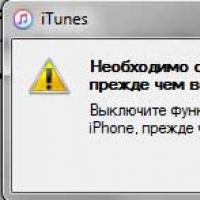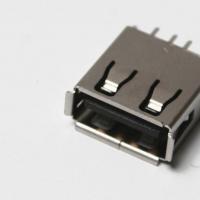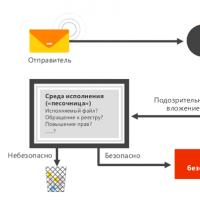Screen keyboard online. Virtual Greek Keyboard Online Keyboard in Greek
You are all free to use it on the Internet. Greek keyboard for entering Greek characters on your computer, or if you do not have a suitable keyboard for entering Cyrillic. This keyboard is used to enter as a small and capital letter and so you can enter any Greek symbol using this online keyboard. In addition, you can edit the text simply by placing the mouse cursor inside the box. The rules are similar to each other, as you, as a rule, type and edit texts in text editing software. We believe that this is a pretty simple online Greek keyboard will help you typing texts to Greek characters, even if you are away from your Greek computerized, for example, you can use it on the Internet Greek keyboard when you are in someone else's country and using the Internet in Internet cafe.
If you duplicate the Greek text and enter it into an email message, it may happen that you see Greek characters perfectly, but people who you will send email messages will not see them properly. To get around this problem, you must save the Greek text in a text editor, for example, assume OpenOffice or Microsoft Word and then you need to send a text file as an attachment. But the best option for exporting IS text to a PDF file, and then you can be 100% sure that the Greek characters will not be confused or lost anyway.
If you need to print anything in your native language, and on a computer or laptop, an English layout - you need a virtual Greek keyboard on the screen of your computer. It is very simple and convenient to use it. If you don't like something, something does not work or does not work correctly - please let us know. For us it is very important. On the site site using our virtual keyboard you can absolutely free and online:Print on a virtual keyboard is simple and free
We have been tested for a long time to test the site interface and keyboard layouts for your convenience. And now we are confident in your comfort when printing on our keyboard online on your monitor screen. There you can use the standard keyboard (QWERTY), the phonetic keyboard and others. In the near future, a Greek keyboard will be added in the form of an alphabet. It is very easy to print letters, translate them, print and save, stay in touch with friends with Facebook and Twitter. And of course - what is the Internet without searching for Google and video in YouTube? All these actions are made on our website in 1 click - try it! You can also save your printed documents (for this you need to log in with Facebook, Twitter or Google), which would later continue them.And if you need from a computer or phone, download the photo and get a link - use Imgisto.
Greek keyboard online on your site - how to get and enjoy
You can also install on your site our link, button or entirely a virtual Greek keyboard online - for this you need to copy the code and insert on your website or blog. We are also open for suggestions on the functions you need - just email us and describe what is missing (the more details - the better) - we will do what you need!Greek keyboard and translation into English online
In order to translate the text printed on the online keyboard, simply click the "Translate" button and in the new window will open the most popular worldwide online translator from Google. By default, the translation into English is set, but you can choose any other at your discretion.In order to have a virtual keyboard always at hand, transfer this link to the bookmarks panel:
For example, in the Firefox browser it looks like this:
(The bookmarks panel must be turned on).
Virtual Keyboard program
The Virtual Keyboard program provides the input of characters using the mouse. Yes, it is not very convenient, but it is definitely better than to write: "Ska4at Russkaya Klaviatura ..."
This program can be useful if you have the need to type text in the language, the symbols of the alphabet of which are missing on the keyboard buttons or the support of the corresponding layout is not installed in the operating system.
Another possible scope of the virtual keyboard is a safe entry of confidential data (passwords, bank account numbers, credit cards). If you do not exclude that some program that registers your keystrokes on the keyboard is following you, the virtual keyboard is a solution to this problem!
At the moment (from 09/14/2013) version 4.0.1 is available for download.
Version 4.0.1
This version has 75 Language layouts and supports 53 Languages:
russian, Azerbaijani, Albanian, English, Arabic, Armenian, Belarusian, Bulgarian, Bosnian, Hungarian, Vietnamese, Dutch, Greek, Georgian, Danish, Hebrew, Icelandic, Spanish, Italian, Kazakh, Kyrgyz, Chinese, Korean, Latvian, Lithuanian, Macedonian , Maltese, Maori, Marathi, Mongolian, German, Norwegian, Polish, Portuguese, Romanian, Serbian, Slovak, Slovenian, Thai, Tamil, Tatar, Turkish, Uzbek, Ukrainian, Urdu, Farsky, Finnish, French, Croatian, Czech, Swedish , Estonian, Japanese,
Has an English interface.

Another version of the program is an analogue of the Virtual Keyboard program. The difference between them is what is written in the Java programming language, so it works independently of the equipment, settings and the operating system language, and is also a platform-dependent. Those. It can work both in Windows and in Linux, as well as in any other operating systems.
The only condition: to start the program it is necessary that the Java virtual machine is installed on the computer. (Java Virtual Machine or JRE)which is usually not included in the operating system. Therefore, it must be installed separately. Java virtual machine can be downloaded to: http://www.java.com/en/download/manual.jsp

Use English letters. For example, α can be introduced as English "A", ψ - as English "Y", etc. This method of writing Greek words is called beta code.
Or install Greek layout ...
The most ordinary Greek layout with 24 letters. The polytonic layout does not require you anyway. Forget about keyboard chords to enter Ppiji, Dasia, Oksiy, Warium, subscription Yot and their combinations. Slavonic himself will provide you with the opportunity to enter this diversity at the right moment. At the same time, you will have the speed of input higher than that of professional vertellors. What is there - higher than the ancient Greeks. I consciously did not learn the standard methods for entering politonics to be sure - what Slavonik offers, enough for Greek minus.
To enter letters with admirements ...
Just press re-on the same key. In this case, the active symbol in the context keyboard will cyclically move along the list by replacing the simple letter you entered on the letter with the jersects. In this case, press the Enter key is not necessary - just enter the next letter the word. For example, you introduced λο, and intend to introduce λόγος. After entering ο you will see options: ό ὸ. Just click once again the ο key, and the letter you entered will be replaced by ό. After that, immediately enter γ.
You can use the arrows ...
When you press the arrows to the left-right, the effect will be as from the repetition, but it is much more convenient to repeat the symbols with admirements - the fingers remain in place, and do not pull to the distant-distant arrow. You can use the mouse, but it is unprofessional :).
And if you press Shift ...
The active character in the context keyboard will move in the opposite direction. This technique is convenient if the list of candidates turned out long, but I want to "reach" to the last symbols faster.
How to enter a subscription iota?
To do this, enter iota explicitly and from its options to choose IOT subscriber. For example, let you need to enter ᾳ. Consistently press the letters α, ι, then repeat pressing ι to get to the Varanta with subscription yota. If you need to enter both iota and emphasis, for example, ᾄ, enter first, and then iota.
How to enter columns?
Colon is entered using a conventional point - when you enter the point, an option with a column is proposed that can be selected by repeatedly pressing the point.
When entering a capital letter ...
All the characters offered to you in the context key will also be big. In this case, when you repeat SHIFT for the sake of a capital letter, it is not necessary - it will only affect the order of bypass, but not on the register.
Why the keyboard "context"?
The context of the letter is its location in the word. Depending on which the word is worth the letter, its valid options may differ. For example, the intake is placed only on the first syllable, and is set. It means that for the vowels of the first syllable there will be options with oxidation and there will be no options without silence, but for the rest - on the contrary. Here are some cases:
- practice is written only above the first syllable
- the letter Σ at the end of the word is written as ς
- threma (two points) is placed only in the position of possible difthong
- the initial ρ is always written with a thick breath
- the combination ρρ is written as ῤῥ
Why among options letters no "necessary"?
This most likely means that the option in this context is unacceptable. In order to avoid mistakes, the Slavonik does not even offer you. If you suddenly discovered that there is no correct option, do not forget to report this to developers on [Email Protected]
And how to enter a consecutive letter?
After all, when repeating pressing the same letter, Slavonik goes through the options?! In this case, after entering the first letter, you need to repay the context keyboard by pressing ESC or ENTER or the mouse, after which you enter the second letter. At first glance, it seems inconvenience, but believe me that it is much more convenient to use repeat options. In a row of highly small vowels.
When does the letters of letters triggered?
The auto transaction is triggered in those cases where the letter you entered in this context 100% should look different. For example, if not at the beginning of the word you introduced σ, the Slavonik will automatically replace it with ς, since it makes no sense to make you choose the option manually. Acute emphasis (recycling) on \u200b\u200bthe last syllable is automatically replaced with heavy (VARIA) when entering the next word of the space. If you suddenly, in some case, the power plants you will not like it, you can cancel it through the usual Undo.
 How to reflash iPhone with PC and iTunes
How to reflash iPhone with PC and iTunes Best Bitcoin Wallets for iOS Download application wallet on iPhone
Best Bitcoin Wallets for iOS Download application wallet on iPhone Lenovo Vibe X2 Description, Features, User Reviews
Lenovo Vibe X2 Description, Features, User Reviews The computer does not see the flash drive: causes and solving the problem
The computer does not see the flash drive: causes and solving the problem About Windows Update From Wannacry Encrypter Virus
About Windows Update From Wannacry Encrypter Virus Hot browser keys
Hot browser keys New Mac Mini turned out to be five times more powerful than the predecessor
New Mac Mini turned out to be five times more powerful than the predecessor